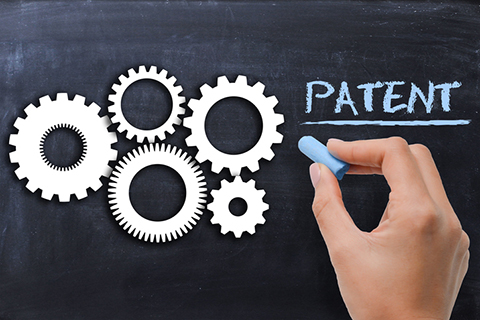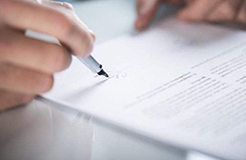Did not receive verification mail? Please confirm whether the mailbox is correct or not Re send mail

Vapor
- 2019-05-29 14:24:26
Mock Chinese patent trial aims to 'demystify' courts

A mock patent-litigation trial, which simulated a real case involving IP (intellectual property) infringement and court ruling procedures in China, hoped to "educate" its 100 attendees about — as well as demystify — patent litigation in China.
The event was the first of its kind held in America and the outcome of joint efforts between US law firm Quinn Emanuel, which specializes in multi-jurisdictional litigation, and its Chinese counterpart, Zhong Lun Law Firm.
Before a mixed audience of people from Silicon Valley companies like Google, Intuit, Nvidia and Fitbit, the three-hour-long performance on Thursday staged a mini Chinese IP court hearing and ruling on a suspected case of infringement of patent rights.
In the fictitious case, Company A had a registered patent for invention on a "spindle motor", while Company B was found to be producing and selling products that contain identical or highly similar features developed from Company A's patent.
Following Chinese legal procedures regarding patent infringement, Company A reported the case to the local IP office and filed a lawsuit against Company B, after Company B had filed a request to the patent re-examination board to rescind Company A's patent.
As the dispute continued to intensify after public hearings, civic rulings and appeals and both sides refused mediation, China's Supreme Court took the case, conducted thorough investigations and made a final ruling settling the case.
Mark Tung, a partner at Quinn Emanuel who played the role of the Chinese judge, said the event was designed to help make clients, many being multinational companies that also operate in China, get more comfortable with China's IP litigation procedures and better understand how legal professionals represent them and protect their rights.
The differences in the legal systems and practices of Chinese and US courts can lead to misunderstandings. For example, Chinese IP court hearings are closed to foreign attorneys, while in the US they are open to the public, so American companies can have difficulty understanding what a Chinese patent trial actually entails, even as litigations of IP disputes in China continue to increase.
The differences do not mean that either system is inferior or superior, or better or more efficient, explained Xiao Liu, a Quinn Emanuel partner who is stationed in Shanghai.
"All we need to do is to leverage the differences, work closely with our Chinese counsels and embrace the differences," he emphasized. The process of IP protection in China has been evolving since the country passed its first patent law in 1984. As China is shifting towards an innovation-driven economy, the central government in recent years has made a serious effort to strengthen IP protection by adopting new legislation, and has even introduced compensation for IP infringement and theft.
IP law and patent law change very quickly in China, said Tung. "I had frequent trips to China, frequently talked to many Chinese consuls, what I discovered is that each trip I made I learned something new in the Chinese patent system."
He believes these changes deliver "an important message to the US companies that are looking to enforce their IP rights in China."
China's dedicated work on the recognition and protection of intellectual property is apparent, said Guo Kejun, a partner at Zhong Lun who led his team attending the mock trial.
"We believe a closer relationship and more frequent communication with our American colleagues are needed," he said.
China has become the world's top generator of patents, according to Shen Changyu, head of China's National Intellectual Property Administration. By the end of 2018, there were 1.62 million invention patents on the Chinese mainland, and around 19.6 million effective trademarks registered.
Growing numbers of China-born companies in the fields of telecomm, AI, robotics, e-commerce and material science are now going global, said Guo, adding they need to have their innovations and inventions, including patents, trademarks, copyrights, trade secrets and software, protected.
China is one of the three-most important IP jurisdictions in the world for enforcement of intellectual property rights, along with the United States and Germany, said Sam Stake, a San Francisco-based trial lawyer who specializes in high-tech litigation with an emphasis on patent, trade-secrets, licensing and product-liability disputes.
Stake emphasized that "it becomes a very standard part of any IP strategy (of a company) to consider China very seriously", and ultimately will benefit everyone. "We've seen cases filed in China along with those filed in the United States and Germany, it's part of the comprehensive strategy."
Source:China Daily
Editor:De
- I also said the two sentence
- Also you can enter 140words






